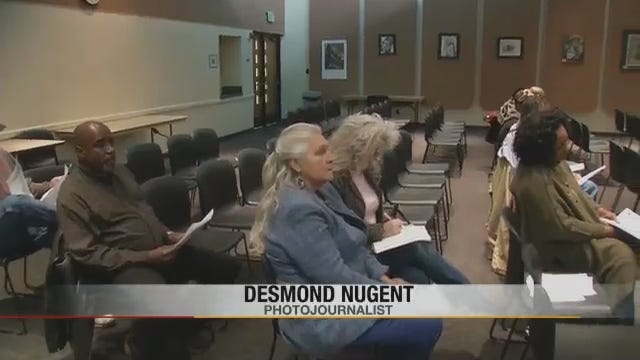Cherokee Freedmen Continue Fight For Citizenship
Close to 3,000 descendants of Cherokee Freedmen are fighting for the right to become Cherokee Nation citizens.Saturday, March 8th 2014, 7:57 pm
Close to 3,000 descendants of Cherokee Freedmen are counting down to a hearing before a federal judge in April. The group is fighting for the right to become Cherokee Nation citizens.
The Freedmen descendants say they were unlawfully kicked out of the Cherokee Nation in the early '80s, and next month, their argument goes before a federal judge in Washington, D.C.
"Imagine if, through some illegal means, you found yourself stripped of American citizenship. How would you feel with the loss of your own identity," asked Marilyn Vann with the Descendants of Freedmen.
She says that's exactly what's happened to thousands of descendants of Cherokee Freedmen. A handful met in Tulsa on Saturday to get an update on their legal case.
The Cherokee Freedmen are descendants of slaves owned by Cherokee Citizens before the Civil War. The Freedmen became citizens of the Cherokee Nation after a treaty was signed in 1866, but in the early 1980's, the Cherokee Nation took the citizenship away from those descendants.
The tribe said all citizens must have a direct ancestor listed on the Dawes Rolls.
"The commitments that were made to the Freedmen people is a responsibility that the tribe has, because the tribe made decisions to keep slaves, to have discriminatory laws against people of African descent in the tribe," Vann said.
"The Cherokee Nation, Creek Nation, all these tribes that held slaves are still responsible for them populations by treaty," Claremore resident Christopher Sewell said.
Sewell is originally from Florida and claims a mixed ancestry that includes Cherokee, Creek, as well as African-American.
"Southern tribes have unique histories, compared to other tribes. And the Freedmen, Black Indians, people like that are an important part of that history, and this is something that should be celebrated; it really shouldn't be something to have divisions over," Sewell said.
The Freedmen descendants say the Cherokee Nation is trying to take away their heritage, and they're confident their federal case will help them get it back. We contacted the Cherokee Nation, but they declined to comment.
"That's our heritage, our background, our family history, and I think it's important that everyone should know the history of their family," Cherokee Freedmen Descendant, Zaynetta Lawrie said.
The hearing is scheduled for late April in Washington, D.C.
Attorneys from the Department of Justice, the Cherokee Nation and the Cherokee Freedmen will all make their case.
More Like This
March 8th, 2014
January 2nd, 2025
September 29th, 2024
September 17th, 2024
Top Headlines
April 2nd, 2025
April 2nd, 2025
April 2nd, 2025












